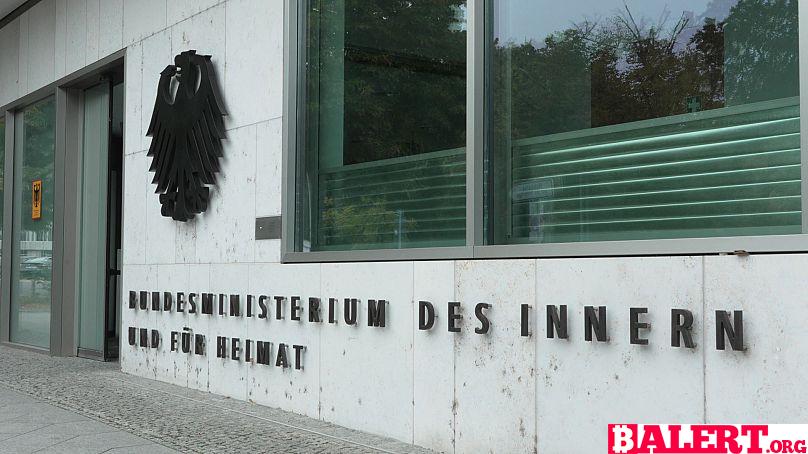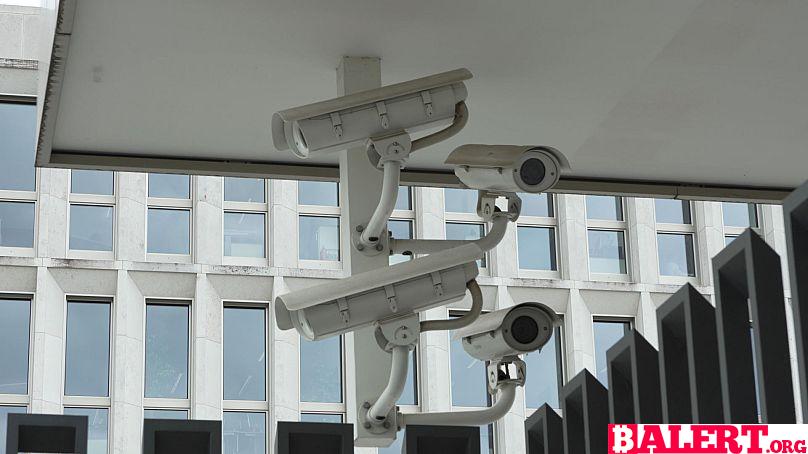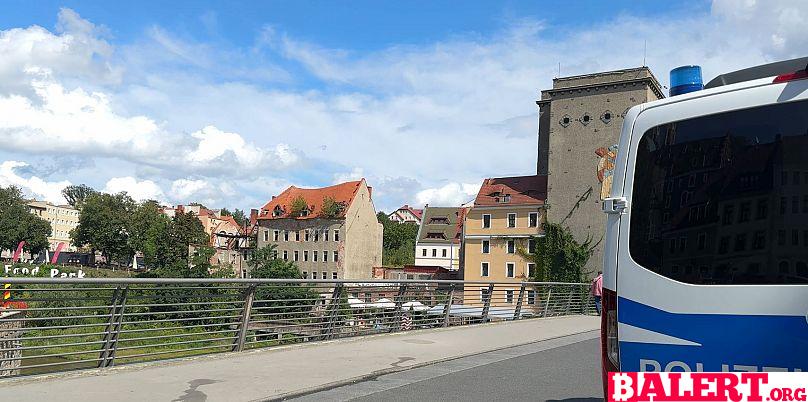World
Germany Reintroduces Border Checks Amid Rising Public Concerns
Germany has reinstated border checks in response to growing public concerns over security and immigration. This move aims to address the rising anxieties among citizens while balancing the challenges of free movement within the EU.

Germany Reintroduces Border Checks Amid Public Concerns

On Monday morning, German border police were fully prepared to initiate passport checks at all land borders. Anticipating long queues, particularly in northern and western Germany, transport companies and daily commuters braced themselves for extensive waiting times. The decision to reinstate these border checks has left many questioning the rationale behind Germany’s move, especially after years of enjoying the freedom of movement — a cornerstone of the European Union.
According to migration expert Svenja Niederfranke from the German Council on Foreign Relations, “The German government aims to demonstrate proactive measures, particularly with upcoming elections on the horizon, making this political signaling crucial. It conveys a message of regaining control over our borders.”
The backdrop for this policy shift includes a series of tragic knife attacks by migrants in recent months, which have ignited public outrage. These incidents are believed to have significantly contributed to the surge of anti-migrant sentiments, benefiting far-right and far-left parties in recent state elections in eastern Germany. With the third state, Brandenburg, preparing for elections in less than a week, current surveys indicate that security concerns dominate voters’ priorities. Additionally, a federal election is scheduled for next year.
Last week, Interior Minister Nancy Faeser extended existing passport checks — already implemented at borders with Austria, Poland, Switzerland, and the Czech Republic — to Germany’s land crossings with France, Denmark, Luxembourg, the Netherlands, and Belgium.
Are These Checks Likely to Be Effective?
Niederfranke noted that research typically shows that border checks tend to apprehend minor offenders rather than major criminals. “Smugglers are often aware of border checks and will find alternative routes,” she explained. For instance, following a recent knife attack at the Solingen Festival of Diversity, where three individuals were killed and eight others injured, the Syrian-born suspect was flagged for deportation to Bulgaria last year but evaded authorities during the attempted removal.
She cautioned that the introduction of these checks could have numerous negative repercussions, especially as the EU’s Schengen zone is built on principles of free movement across external borders. Commuters and transport businesses will likely bear the brunt of delays caused by prolonged border checks. “People who rely on cross-border travel for work or transport will find it extremely frustrating to face daily delays at border control,” she added.
Legal experts are also investigating the potential for turning asylum seekers away at the German border, assessing its legality under EU law.

Operational Costs and Staffing Challenges
Niederfranke highlighted that the financial and human resources required to implement these border checks will be substantial. The federal police may need to reallocate officers, despite existing personnel shortages. A police union has called for an additional 5,000 officers to manage this task. “The financial implications of establishing the necessary infrastructure and deploying police personnel are significant,” she remarked.
Will There Be a Political Price to Pay?
Germany’s decision to reinstate these border checks has drawn sharp criticism from Poland, Greece, and Austria, raising concerns about the potential destabilization of the EU. While Austria has vocally condemned the actions, it is worth noting that border controls between Austria and Germany have been in place for years, suggesting a complex political landscape influenced by upcoming elections in Austria.
Conversely, Hungary’s Prime Minister Viktor Orban has praised Germany’s decision, interpreting it as an alignment with his own border control policies — a perspective that may not reflect the German government’s intentions.
Niederfranke pointed out that EU officials are likely expressing dissatisfaction with Germany’s shift in policy. “Germany has traditionally been a progressive voice in discussions surrounding the new pact and the reform of the European asylum system, but this recent move appears to contradict that stance,” she said.
Could the EU Block These Controls and Take Germany to Court?
Niederfranke explained that the European Commission typically opposes member states reintroducing temporary border controls, as it undermines the foundational principles of the EU and the Schengen Zone. The recent border checks have been framed as a “last resort” against terrorism rather than migration, which may complicate the EU’s response. “Specific regulations govern when a member state can enact temporary border controls,” she noted. “Now, however, there is a stronger basis for arguing in favor of such measures, which could potentially extend the duration of these checks.”
To justify these border checks, member states must demonstrate a serious threat to public order or security. Although the Commission may view these controls as unlawful, it is uncertain whether they would take Germany to court, especially given past instances where member states have implemented similar internal border controls.
“Even if the Commission believes the actions are unlawful, the decision to pursue legal action would depend on broader political considerations,” Niederfranke concluded. With asylum applications declining by 20% compared to last year, it may be challenging for Germany to argue that such measures are essential as a last resort.

Understanding the Asylum Process
One common misconception about the asylum process involves the Dublin regulations. Niederfranke clarified that asylum seekers often traverse multiple EU states before applying for asylum, whether in an EU country or elsewhere, such as the UK.
Upon application, individuals are subjected to various inquiries, such as whether they are unaccompanied minors, if they have close family in another member state, or if a spouse has applied for asylum in another country. If any of these conditions apply, that member state assumes responsibility. If none apply, the country where the individual was first registered — typically through fingerprinting — becomes responsible for their claim.
“Many individuals may not be registered in Italy or Greece and could arrive in countries like Austria without any prior family ties or visa history,” she added. “The Dublin system is complex, but it remains true that countries bordering external EU borders handle the majority of asylum claims.”
This year, the EU reformed its asylum system, mandating that member states accepting fewer asylum seekers contribute in alternative ways. They can either relocate individuals from countries like Italy, pay €20,000 for each rejected asylum seeker, or finance operational support. This reform, known as the New Pact on Migration and Asylum, seeks to ensure equitable distribution of responsibilities across all member states.
World
Dominique Pelicot Testifies in Harrowing Rape Trial
Join us as Dominique Pelicot courageously testifies in a harrowing rape trial, shedding light on the complexities of trauma and justice. Her powerful story raises crucial questions about the legal system and the importance of support for survivors.

Dominique Pelicot Takes the Stand in Shocking Rape Trial
In a courtroom drama that has captivated France and garnered international attention, Dominique Pelicot, the man at the center of a harrowing rape trial, finally addressed the court. With tears streaming down his face, he recounted how his wife had been instrumental in helping him cope with a tumultuous past marked by trauma. He revealed that he had endured a sexual assault at the tender age of nine while hospitalized, and he also witnessed a gang rape during his teenage years while working as an apprentice electrician on a construction site.
“She didn’t deserve this, I acknowledge that,” Mr. Pelicot stated, his voice barely audible as he struggled to convey his emotions. The gravity of the situation weighed heavily on him, and the courtroom fell silent, straining to catch his every word.
Now 71 years old, Mr. Pelicot faces serious allegations of drugging his wife, Gisèle Pelicot, whom he has been married to for half a century, over a span of nearly ten years. Prosecutors contend that he used drugs to render her comatose, allowing him to rape her repeatedly. Furthermore, authorities allege that he went so far as to invite numerous men into their home, facilitating a nightmarish scenario where they, too, engaged in the assault of his wife.
Overall, 51 men, including Mr. Pelicot, are on trial concurrently, primarily facing charges related to the aggravated rape of Ms. Pelicot. Among them, one individual has already pleaded guilty to similar crimes, admitting to drugging his own wife to assault her and inviting Mr. Pelicot to partake in the horrific act while she was incapacitated.
Mr. Pelicot’s unexpected testimony came after a tumultuous start to the trial. Just a week in, he was stricken with severe health issues that forced him to miss four consecutive days in court. The head judge ultimately decided to postpone proceedings, as Mr. Pelicot was diagnosed with kidney stones, a kidney infection, and prostate complications, adding yet another layer of complexity to this already harrowing case.
World
Meta Bans Russian State Media Outlets from Social Media Platforms
Explore the implications of Meta’s decision to ban Russian state media outlets from its social media platforms. Understand the impact on information dissemination and the ongoing battle against misinformation in the digital landscape.

Meta Imposes Global Ban on Russian State Media Outlets
In a significant move, Meta Platforms, Inc., the parent company of Facebook, has announced the prohibition of Russian state media outlets, including RT (Russia Today) and Rossiya Segodnya, from all its social media platforms. The decision stems from the company’s concerns regarding the deceptive strategies employed by these media organizations to execute covert influence operations across the internet.
Meta made this announcement on Monday, emphasizing that the ban will be enforced worldwide across its various platforms, such as Instagram, WhatsApp, and Threads. The rollout of this ban is expected to take place over the coming days.
Statement from Meta
A spokesperson for Meta elaborated on the decision, stating, “After careful consideration, we have expanded our ongoing enforcement actions against Russian state media outlets. As a result, Rossiya Segodnya, RT, and other affiliated entities are now banned from our applications globally due to their involvement in foreign interference activities.”
For further insights into this development, watch the video in the player above.
World
Trump Recalls Alleged Assassination Attempt While Golfing
Explore Donald Trump’s chilling recollection of an alleged assassination attempt he experienced while enjoying a round of golf. Delve into the tense moments and his reflections on safety, fame, and the unpredictability of public life.

In a recent interview on the social media platform X, Republican presidential nominee Donald Trump recounted a harrowing incident he claims to have experienced while playing golf. Trump described how, during a peaceful Sunday morning round with friends, the tranquility of the day was abruptly shattered by the sound of gunfire in the air.
“It was a beautiful day, everything was just perfect,” Trump reflected. “Then all of a sudden, we heard shots being fired—probably around four or five in total.” He went on to explain that a Secret Service agent was the first to spot the suspect, who was allegedly armed with an AK-47, a powerful assault rifle.
“The agent saw the barrel of the weapon and immediately took action, returning fire at the barrel and aiming in the direction of the bushes,” Trump detailed. “I would have loved to have sunk that last putt, but we decided it was best to leave the scene promptly.”
Trump expressed his gratitude towards the agents and a vigilant civilian who aided in tracking down the suspect, who was eventually apprehended following a high-speed chase.
Suspect Faces Multiple Federal Gun Charges
The FBI has identified the suspect as Ryan Wesley Routh, accusing him of targeting Trump during his time at the golf club in West Palm Beach, Florida. According to an FBI report, Routh had allegedly hidden among the hedges of the golf course for an astonishing 12 hours. Authorities discovered an SKS-style assault rifle, a GoPro camera, and a bag of food at the scene.
The 58-year-old Routh is now facing two serious federal gun charges. If convicted on both counts, he could face a combined maximum sentence of 20 years in prison. Notably, neither of the charges is directly related to an assassination attempt. The first charge pertains to possessing a firearm despite a prior felony conviction, which carries a potential 15-year sentence, a fine of $250,000 (€225,000), and three years of supervised release.
The second charge involves possession of a firearm with an obliterated serial number, which could result in a five-year prison term, the same financial penalties, and also three years of supervised release. As the investigation continues, additional charges could be forthcoming.
While the motive behind Routh’s actions remains unclear, his digital footprint reveals strong political affiliations, particularly concerning issues surrounding Ukraine and China. Routh consistently expressed support for Ukraine across various social media platforms, even claiming to have orchestrated a recruitment scheme for international volunteers aiming to assist Ukraine in its fight against Russia’s invasion. This behavior has been denounced by Ukrainian soldiers and members of the International Legion, who disavowed Routh’s actions and motives.
-

 Business2 months ago
Business2 months agoObituary: Dan Collins
-

 Gaming3 months ago
Gaming3 months agoMore than a thousand students vowed not to work for Amazon and Google due to the Nimbus Project.
-

 World3 months ago
World3 months agoRussia and North Korea Strengthen Defense Ties
-

 Business3 months ago
Business3 months agoJump Crypto Invests $10 Million in Pro-Crypto PAC
-

 Gaming3 months ago
Gaming3 months agoThe Inspirational Success Story of Avon’s Founder Who Sold Books Door to Door
-

 World2 months ago
World2 months agoThe Resilience of Varî Vãti Marubo: A Journey Through the Amazon Rainforest
-

 World3 months ago
World3 months agoNavigating a Historical Identity Crisis in North Macedonia
-

 Article3 months ago
Article3 months agoCreative Design Applications Developed with Artificial Intelligence














